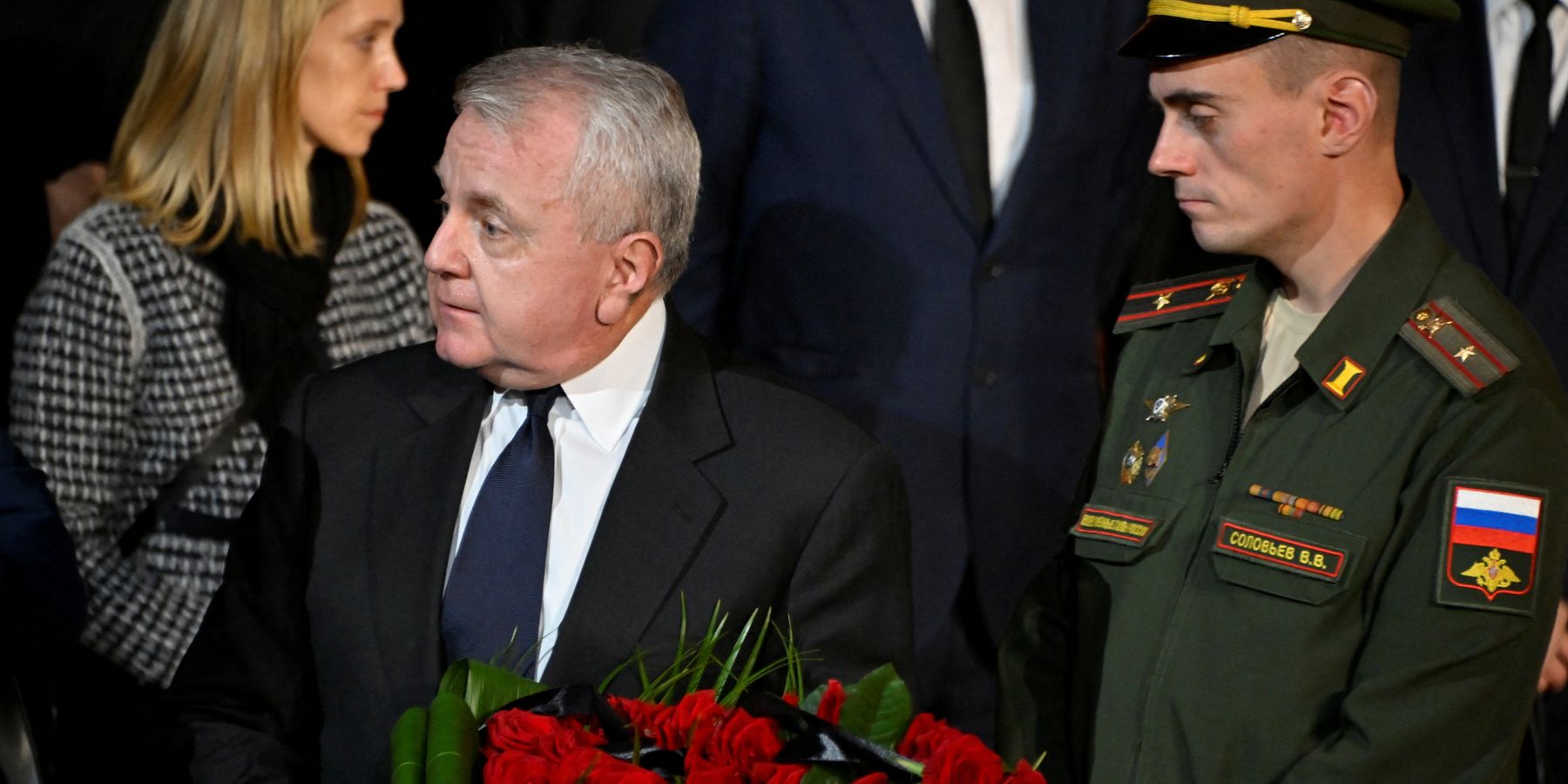Donald Trump is once again the president and there is no greater foreign policy challenge he has promised to tackle than how to resolve the Russia-Ukraine War.
In the frenzied rush to save Ukraine from Russian aggression, there has been scant attention paid to the origins of the conflict. However, an important memoir published in 2024 by John Sullivan, who served as the U.S. ambassador to Russia from 2020 until 2022, could provide some answers.
Ominously titled "Midnight in Moscow" the book shows just how belligerent towards Russia the Biden administration was at a fraught moment — and how little key American diplomats seemed to think of real diplomacy.
A careful study of Sullivan’s account reveals he was the wrong man at the wrong place at the wrong time. Sullivan had prior experience as an attorney and this helped shape his sheriff-like, good-versus-evil worldview. The result was an escalatory spiral in U.S.-Russia relations that ended in catastrophe for Ukraine.
Every U.S. ambassador to Moscow likes to compare himself to George Kennan — one of America’s most famous and far-sighted diplomats — and Sullivan is no exception. But whereas Kennan was a genuine scholar of Russia, Sullivan seems to have made misstep after misstep. The best that can be said is he does appear to have done his utmost to protect American citizens unjustly held in Russia. He also attempted to improve the U.S.-Russia relationship in certain ways, for example in seeking to renew the important START agreement on strategic nuclear weaponry.
Nevertheless, the many grave errors made during Sullivan’s tenure cannot be ignored. By far, the most important revelation from his memoir is that the Ukraine issue was hardly even discussed at an important Geneva summit in June 2021 between Joe Biden and Vladimir Putin. This is both bizarre and depressing, particularly as this was clearly the best chance Washington had to head off the escalation that eventuated in the Russia-Ukraine War.
The responsibility, of course, lies not only with Sullivan but other senior Biden administration officials, who neglected their duty by apparently not realizing the dangers that had been building in the Ukraine context. Of course, to make progress on that issue also would have required an inclination toward diplomatic compromise — one part of an ambassador’s job description that Sullivan seems to have missed.
Two more interesting facts emerge in this memoir regarding that key summit. First, Sullivan explains that the meetings were to consist of two sessions, planned for a total of about five hours. However, Biden proposed significantly truncating the meeting down to about three hours.
And whereas the Ukraine topic was hardly broached, Sullivan explains that the approaching U.S. withdrawal from Afghanistan was talked about quite extensively during the Geneva Summit. Apparently, the United States made clear that it was actively seeking an alternative base for its counterterrorism operations in the region. Putin then brought up the possibility of the U.S. using a Russian base in Tajikistan — a country bordering Afghanistan.
While this was clearly an attempt by the Russian leader to find common ground, Sullivan dismissed the overture as “utterly improbable” and failed to follow up.
It’s part of a dismaying pattern for Sullivan, who claims he is “not a Russophobe,” yet asserts with pride that he took this tough diplomatic post in order to “study an adversary up close.”
That may relate to another of Sullivan’s candid admissions: that he was almost fired by Trump in 2018 for authorizing sanctions against Russia. This move “incensed” Trump, who believed “the ‘deep state’ was acting without his approval to subvert his relationship with Putin and Russia.” Sadly, at nearly every turn, Sullivan, under both Trump and later Biden, opted to escalate tensions with Russia rather than seeking diplomatic solutions.
An obvious example of Sullivan’s failure to seek compromise was his evident support for Washington’s poorly thought-out dispatch of Victoria Nuland to Moscow in October 2021 as Biden’s top emissary to negotiate on the matter of Ukraine. Nuland is reviled and indeed sanctioned in Russia for her notorious role in the 2014 Euromaidan protests in Ukraine. This choice demonstrated an evident desire to rub salt in Russian wounds rather than achieve necessary compromise.
Somewhat predictably, Sullivan concludes his book with a call to arms, urging Americans not to shrink from their “responsibility” to support Ukraine and bear the burdens of the new cold war. We can only wonder how history might have turned out if Washington still had diplomats who actually engaged in diplomacy rather than insults and escalations.
This whole sad story is only underlined by the pathetic fact that Biden’s top diplomat, Secretary of State Antony Blinken, hardly even spoke with his Russian counterpart after the 2022 invasion of Ukraine. It’s a nearly unparalleled feat of diplomatic malpractice.
- Diplomacy Watch: Did Boris Johnson help stop a peace deal in Ukraine? ›
- 'Misfit in Moscow' takes aim at UK's failed Russia strategy ›
















